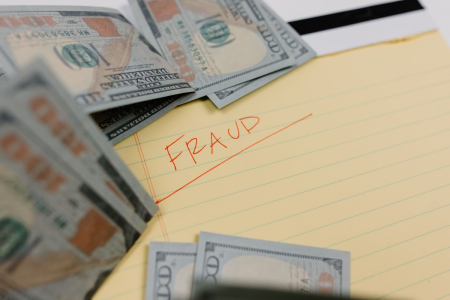Scammers increasingly targeting online sellers
Here at the Seniors Discount Club, we’re all about helping our community live their best lives by providing the latest news, advice, and discounts. Part of this mission includes keeping you informed on potential scams so you can protect yourself and your hard-earned funds.
We live in a world where selling unwanted or used items online has become increasingly popular. Websites like Facebook Marketplace and Gumtree have become go-to platforms to turn our clutter into cash. However, recent data suggests that online sellers need to remain vigilant to avoid falling prey to predators lurking in the shadows.

The National Australia Bank (NAB) has issued a warning concerning the considerable increase in scams targeting Aussies selling goods online. According to the data released by the bank, goods and services scams have risen by a staggering 66% in the past three months alone.
It appears that many of these scams revolve around exploiting the PayID service, a free tool that allows individuals to send and receive money via mobile phone numbers, email addresses, or ABNs. NAB's executive for group investigations and fraud, Chris Sheehan, warns that scammers have identified online marketplaces as a key opportunity to rip people off.
'We are getting reports of people selling an old TV or fridge online and being inundated with identical messages from scammers wanting to purchase the item with PayID,' explains Sheehan.
Scammers are capitalising on the fact that PayID is a relatively new method of transferring funds instantly. The primary red flag is when someone requests payments to upgrade or access PayID, given it is a free service.
Sheehan emphasises, 'There are never any charges related to using PayID.'
Furthermore, it is essential to note that PayID will never contact you directly via email, text, or message since your bank manages the service. Hence, any communication received directly from 'PayID' should be treated as a scam.
Last year, Scamwatch reported that Australians lost $260,000 to PayID impersonation scams.

Dear members of the Seniors Discount Club, as you navigate the realm of online selling, we would like to hear from you. What precautions do you take to ensure a safe and secure online selling experience? Have you encountered any scams or suspicious requests in the past?
Share your insights, tips, and experiences to help us all stay vigilant and protected. Remember, together, we can create a safer environment for online transactions. Happy (and safe) online selling!
We live in a world where selling unwanted or used items online has become increasingly popular. Websites like Facebook Marketplace and Gumtree have become go-to platforms to turn our clutter into cash. However, recent data suggests that online sellers need to remain vigilant to avoid falling prey to predators lurking in the shadows.

According to the NAB, there has been a rise in scams specifically targeting individuals who use online platforms to sell their unwanted or unused items. Photo by Tara Winstead
The National Australia Bank (NAB) has issued a warning concerning the considerable increase in scams targeting Aussies selling goods online. According to the data released by the bank, goods and services scams have risen by a staggering 66% in the past three months alone.
It appears that many of these scams revolve around exploiting the PayID service, a free tool that allows individuals to send and receive money via mobile phone numbers, email addresses, or ABNs. NAB's executive for group investigations and fraud, Chris Sheehan, warns that scammers have identified online marketplaces as a key opportunity to rip people off.
'We are getting reports of people selling an old TV or fridge online and being inundated with identical messages from scammers wanting to purchase the item with PayID,' explains Sheehan.
Scammers are capitalising on the fact that PayID is a relatively new method of transferring funds instantly. The primary red flag is when someone requests payments to upgrade or access PayID, given it is a free service.
Sheehan emphasises, 'There are never any charges related to using PayID.'
Furthermore, it is essential to note that PayID will never contact you directly via email, text, or message since your bank manages the service. Hence, any communication received directly from 'PayID' should be treated as a scam.
Last year, Scamwatch reported that Australians lost $260,000 to PayID impersonation scams.
How To Spot A Scam
- Be suspicious if buyers insist on using PayID and claim your transaction can't be completed due to the lack of a 'business' account.
- Be cautious if they say they've sent extra money to upgrade your account and they provide fake email evidence, urging you to reimburse them. Remember, no money will ever appear in your account.
NAB advises PayID users to remember that:
- You'll never need to send money to receive a PayID payment.
- Additional actions like upgrading an account to receive funds are unnecessary.
- Communication from PayID via email, text, or messenger is very likely a scam, as your bank manages the service.
Key Takeaways
- People selling unwanted or used items on websites such as Facebook Marketplace and Gumtree are at increased risk of being targeted by scammers.
- The National Australia Bank (NAB) released new customer data showing goods and services scams have increased 66 per cent in the past three months.
- A third of those reports involved criminals trying to exploit PayID, a free service on which scammers have focused.
- Australians lost $260,000 to PayID impersonation scams last year, according to Scamwatch.
Share your insights, tips, and experiences to help us all stay vigilant and protected. Remember, together, we can create a safer environment for online transactions. Happy (and safe) online selling!
Last edited by a moderator:







